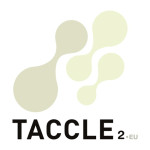Glogster is a perfect tool for pupils to present or communicate information. You can use it for creating posters, fact files, project boards or ‘how to…’ instructions. It also serves as a good entry level activity to blogging. You can put text, images, audio and video files on your Glog and add hyperlinks as well Full Article…
Light and shadows
Here’s a great primary school resource from BBC schools about light and shadows – it’s a game you can play in groups or as a class. Before you play the game try out all or some of these introductory activities Brainstorm a list of things that ‘give out light’. (List everything learners suggest, even if Full Article…
Podomatic Podcasting
Jeanette has been using Podomatic to make podcasts… An extremely simple site to use which guides you through a step-by-step process to create your podcast, as well as providing a separate ‘minicast’ option to create smaller pieces. Here are some possibilities: An interesting way to get students to revise – give groups a topic which they Full Article…
Science Songs
A classroom favourite is getting your students to write a song, poem or mnemonic to help them to remember a sequence. This could be the colours of the rainbow (Richard Of York Gave Battle In Vain), or the planets of the solar system My Very Easy Method Just Speeds Up Naming Planets Or the electromagnetic Full Article…
Wordle Ways (for teaching literature)
Wordles are particularly suited to short activities such as warm-ups or as prerunners/introductions to larger discussions and tasks. They are also an eyecatching way of presenting familiar terms for revision/introduction. Here are some possibilities: Why not start a class with some wordles made from different Shakespeare tragedies and see if they can guess Full Article…
Toontastic!
Age: 7+yrs Ease **** Overview Through this activity, learners investigate writing in the comic book genre. They will learn how to use dialog to express their ideas and create fun and original story sequences. This is particularly good for investigating sequencing and plot. Description Ask the pupils to bring their favourite comic book to school. Full Article…





 English
English Nederlands
Nederlands Deutsch
Deutsch Italiano
Italiano Español
Español Português
Português Română
Română Cymraeg
Cymraeg